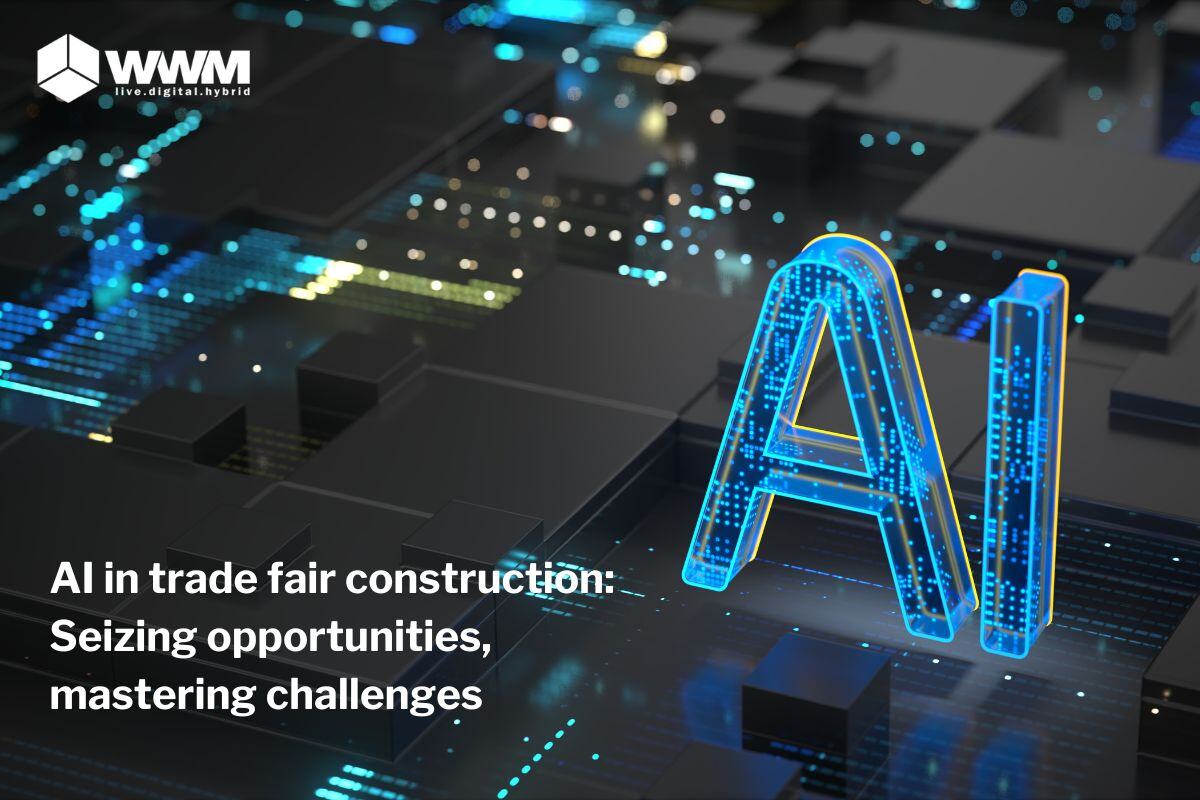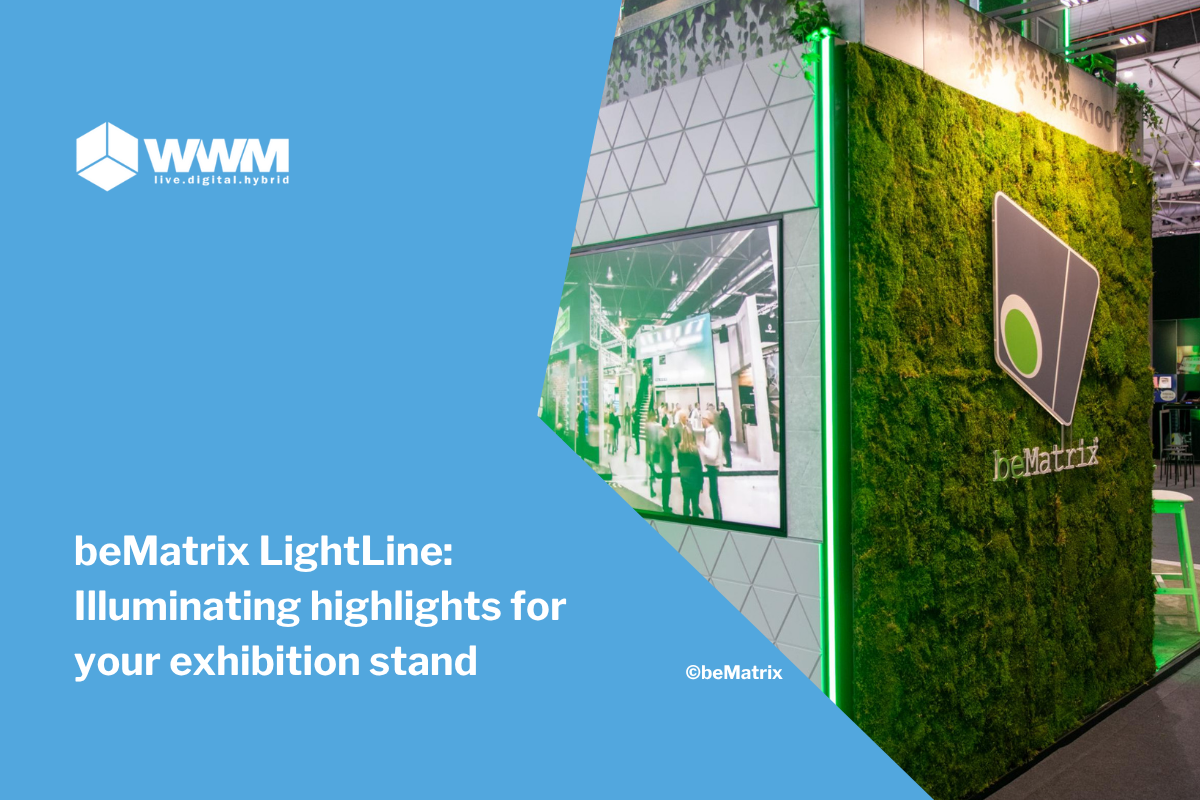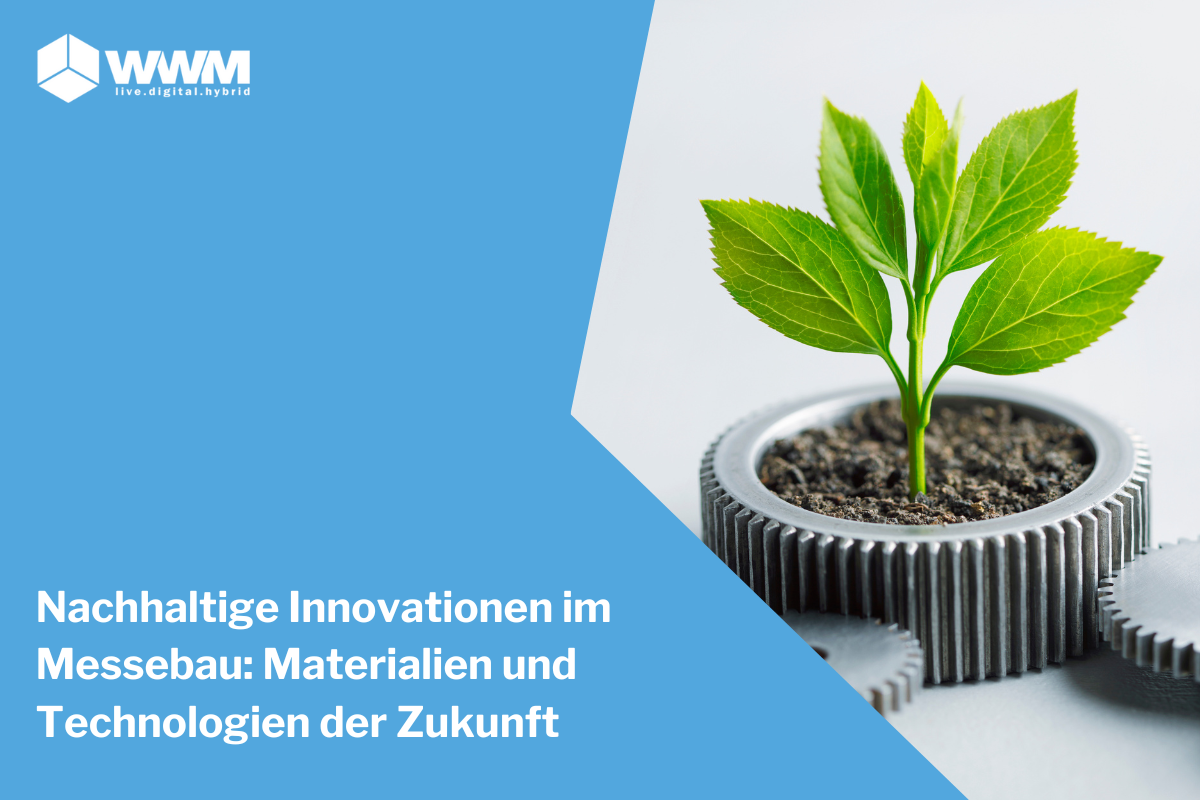beMatrix LightLine: Illuminating highlights for your exhibition stand
New at RocketExpo & ExpoCloud A successful trade fair stand is much more than just a functional structure; it is a stage, brand ambassador, and world...

In today's digitalized world, artificial intelligence (AI) has brought about profound changes in many industries. Exhibition stand construction is no exception. From planning and design to evaluating visitor flows, AI is revolutionizing the way trade fairs are organized and executed. In this blog post, we look at how AI is enriching trade fair construction, the challenges it poses and the advantages and disadvantages of using it.
Designing an exhibition stand has never been as precise and efficient as it is today. By using advanced artificial intelligence (AI), companies can significantly optimize the entire planning process. AI comprehensively analyzes all relevant data and proposes tailor-made solutions that are adapted to the individual requirements of an exhibition stand. With innovative planning and simulation tools, different layouts can be tested and visualized in real time - long before construction begins. The result? A significant reduction in time and costs.
Thanks to AI-supported CAD (computer-aided design) programs, companies can now design exhibition stands faster and more precisely. These advanced systems analyze various design possibilities and present the most effective options to make the best use of available space. Complemented by automated ordering and logistics systems that ensure materials are available on time and in the right quantities, you'll experience a smooth and efficient exhibition stand build that exceeds your expectations.
Today's customers expect customized experiences. AI-powered analytics tools enable stand builders to understand visitor behavior and preferences. This data can be used to develop personalized offers that make the trade fair visit more relevant for each individual visitor. For example, individual information about products or services can be tailored directly to the trade fair stand.
By using AI, companies can respond to visitors' needs in real time. Chatbots and virtual assistants offer personalized advice and support, while augmented reality (AR) and virtual reality (VR) create immersive experiences that allow visitors to immerse themselves in the world of the brand.
Thanks to advanced machine learning algorithms, companies can recognize precise patterns from huge amounts of data and predict future trends at an early stage. This innovative technology makes it possible to anticipate visitor numbers and identify emerging topics in good time - an invaluable advantage for any successful event.
Through the targeted analysis of social media, online searches and other relevant data sources, AI provides valuable insights that stand builders can use to optimally align their stands and offerings with current trends. This keeps you one step ahead and guarantees that your trade fair presence is always in line with the latest developments. With KI at your side, you are not only well prepared, but also set standards in trade fair construction.
By analyzing data on target groups and competitors, AI can help to optimize marketing strategies. AI-supported systems can predict which marketing measures promise the greatest success and thus deploy resources in a targeted manner. This enables an effective approach to the target group and a higher conversion rate.
AI-based marketing tools analyse customer interactions and purchasing behaviour in order to develop personalized marketing campaigns. These tools help to maximize ROI (return on investment) by identifying the most effective channels and messages.png?width=1200&height=800&name=Titelbild%20(17).png)
The use of artificial intelligence (AI) in trade fair construction opens up numerous opportunities, but it also places high demands on data quality and security. A precise and reliable database is essential, as incorrect or incomplete data can lead to inaccurate analyses and incorrect decisions. Furthermore, it is of the utmost importance that all collected data is processed securely and in accordance with the applicable data protection guidelines.
To overcome these challenges, companies should invest in advanced data management systems that ensure high data quality and timeliness. Strict compliance with data protection regulations such as the GDPR (General Data Protection Regulation) is crucial in order to strengthen the trust of your customers and minimize potential legal risks. This not only ensures the integrity of your data, but also creates the basis for the successful and legally compliant use of AI in exhibition stand construction.
The introduction of artificial intelligence (AI) can be met with skepticism or resistance from employees, as there are often fears that AI could replace jobs. In order to overcome these fears and promote a positive attitude towards the new technology, open and transparent communication is crucial.
Companies should communicate the benefits of AI to their employees in a clear and understandable way by offering comprehensive training and education programs. These initiatives not only help to develop the necessary skills, but also illustrate how AI can facilitate and enrich daily work. By actively involving your employees in the implementation process and specifically promoting their skills, you create a culture of acceptance and support for AI that paves the way for successful integration.
The increasing integration of artificial intelligence (AI) can present companies with new challenges, particularly with regard to a possible dependence on automated systems. An excess of technological support could impair the creative thinking and problem-solving skills of employees. It is therefore essential to find a balance between technical assistance and human engagement.
Companies should ensure that their employees continue to have the opportunity to make creative and strategic decisions. AI should be seen as a powerful tool to support, not replace, human expertise. By purposefully combining AI technologies with the unique creativity and strategic thinking of your employees, you can unlock the full potential of your organization while fostering an innovative and dynamic work environment.

The implementation of artificial intelligence (AI) in trade fair construction has far-reaching positive effects that extend far beyond the industry. Companies that successfully use AI not only strengthen their competitiveness, but also actively contribute to job security and job creation. By optimizing processes and introducing innovative solutions, AI creates new opportunities and promotes economic growth.
These technological advances are not only beneficial for companies, but ultimately also reach end consumers. AI continuously promotes innovation, which is reflected in improved products and services. This benefits everyone, from more efficient trade fair appearances to higher quality experiences and offers that enrich people's everyday lives.
The use of artificial intelligence (AI) can make a significant contribution to strengthening trust in companies by making processes more transparent. When visitors realize that their data is being used in a targeted and meaningful way to create tailored experiences, the perception of your brand is positively impacted.
AI offers the opportunity to significantly improve interactions between companies and customers by delivering personalized and relevant experiences. This not only leads to increased customer engagement, but also higher satisfaction and loyalty. By using AI to optimize your customer relationships, you position your brand as innovative and customer-centric, which ultimately contributes to a positive image and long-term success.
Artificial intelligence opens up impressive opportunities for optimization and differentiation in trade fair construction. Despite the challenges associated with implementation, the advantages clearly outweigh the disadvantages. Companies that are prepared to invest in AI and provide their employees with targeted training can gain a clear competitive advantage in the dynamic trade fair industry. With AI, you can not only increase your efficiency and create innovative trade fair experiences, but also position your brand as a pioneer in the industry. Take the opportunity to raise your trade fair presence to a new level and successfully assert yourself in a constantly changing market.

New at RocketExpo & ExpoCloud A successful trade fair stand is much more than just a functional structure; it is a stage, brand ambassador, and world...

The air at a trade fair is full of excitement: people streaming through the halls, loud conversations, gleaming stands, products in the spotlight -...

Sustainable solutions are becoming increasingly important in modern trade fair construction. Companies, exhibitors and organizers are increasingly...